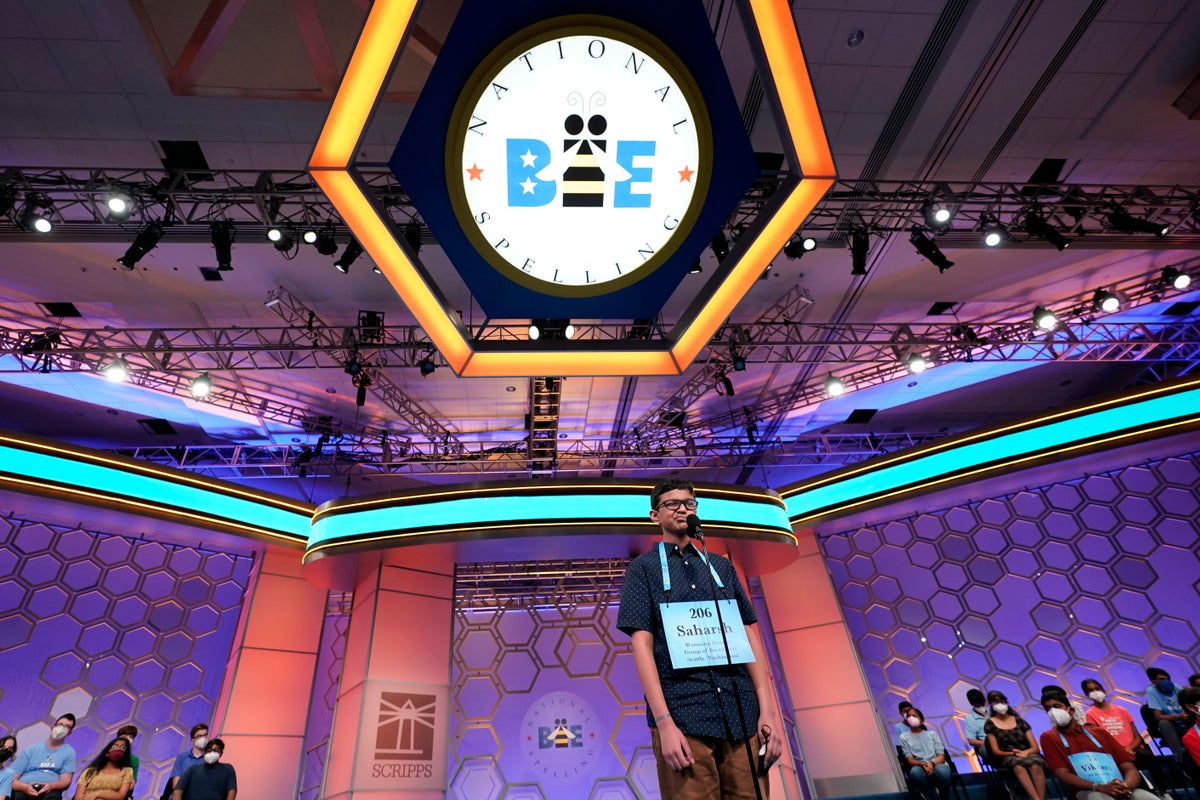
When Corrie Loeffler was in elementary school, she scribbled in a scrapbook her very unusual dream job: director of the Scripps National Spelling Bee.
That dream came true Wednesday for the 40-year-old Loeffler, a former speller and longtime bee staffer who was announced as the competition's third executive director in the past two years.
“It's not many people who can say they got to do the thing they wanted to do when they were a kid, especially a weird, unique position,” Loeffler told The Associated Press ahead of the announcement. “I feel very tickled by that.”
Loeffler replaces J. Michael Durnil, a veteran nonprofit leader who guided the world's preeminent spelling competition during an eventful 20-month period and resigned last month because of family health issues.
The bee began in 1925 and was led from 1998 to 2020 by Paige Kimble, the 1981 champion. Loeffler, who competed in the bee from 1994 to 1996 and finished fifth in 1995, joined the staff in 2006 and served in several leadership roles.
Cincinnati-based Scripps conducted a national search for Kimble's replacement — but not this time. Loeffler was elevated immediately to interim director, and her start date for the permanent job is Jan. 3.
Paul Loeffler, her older brother who competed in 1990 and is the bee’s longtime television analyst, called his sister the competition's “ideal caretaker.”
“She has a firm grasp on the spirit that has propelled it for nearly a century,” he said. “Her understanding of the mind of a champion speller is balanced by her compassion for those who are dealt disappointment when the bell sounds.”
Durnil took over after the 2020 bee was canceled because of COVID-19. He shepherded a mostly virtual competition in 2021, with limited in-person finals at Walt Disney World, and brought the bee back this year to its regular venue, a convention center outside Washington.
The 2022 edition was still downsized, however, in part for financial reasons — the bee had a net loss of 47 regional sponsors during the pandemic — but largely because Durnil eliminated a wild-card program that essentially allowed spellers to buy a spot in the national finals.
Loeffler said there are no plans to bring back the wild cards. As for the financial backing, Scripps said it has about 200 regional sponsors for 2023, up from 198 this year.
Loeffler said maintaining and enhancing the in-person Bee Week experience for finalists who triumph at the school and regional levels is foremost among her priorities. It's a perspective earned through disappointment after she lost in the second round in 1996, her last year of eligibility.
“No matter how you do in the competition, Bee Week will change your life,” Loeffler said. “I never won the competition. That's not what it was about for me. It's about everything else you learn from competing and the way it makes you see the world.”
Dr. Kavya Shivashankar, the 2009 champ who serves on the panel that selects words for the bee, praised her appointment.
“She's a very warm person who just has so much joy when she sees all the spellers,” Shivashankar said. “It's very apparent at all the Bee Weeks that she genuinely cares for them and has everybody's best interest at heart.”
The bee introduced a lightning-round tiebreaker after it ended in ties four times in the 2010s, including an eight-way draw in 2019 when Scripps ran out of words difficult enough to challenge a deep field of spellers. Scripps also diversified its word panel after that debacle by adding more recent ex-spellers.
Loeffler said the tiebreaker would be tweaked but remain. She also said spellers would continue to be asked multiple-choice vocabulary questions onstage, a much-criticized new element that she called key to the bee's educational mission.
“I love that the onstage version of word meaning testing leads to a spotlight on it in a way that just having it behind the scenes never could,” Loeffler said.







